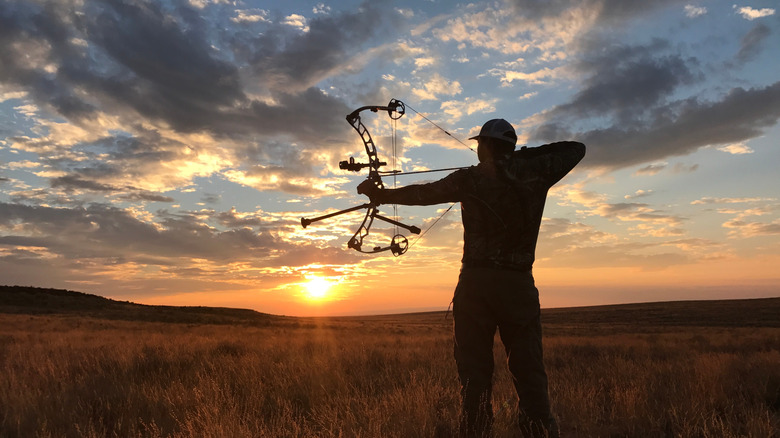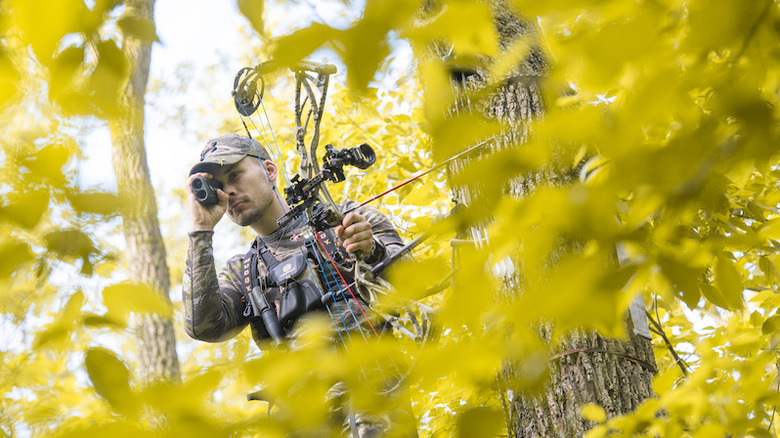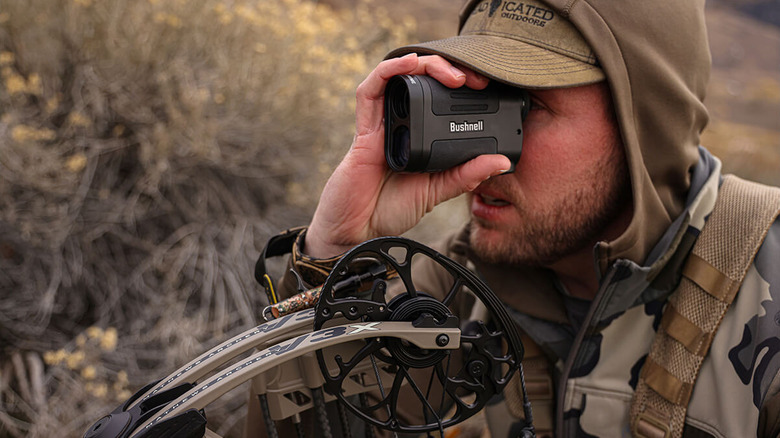What Is A Rangefinder And How Can It Improve Your Archery Skills?
Archery is one of those sports where the smallest detail can lead to a drastic change in the outcome. For hunters who opt for a bow over a gun, it's these fine details that can often be the difference between a clean shot and a complete miss. This is why rangefinders have become such a popular piece of equipment for anyone who engages in archery. These handy little gadgets give hunters that extra edge of confidence in knowing where their arrow will land, as they remove the uncertainty from determining their yardage.
Arrows are vastly different from rifles, as they don't travel in a straight line for nearly as long. Their slower speeds mean they drop more quickly, and even the slightest miscalculation of the required distance can lead to an arrow falling short or flying over the target. Due to an arrow's steep arc, tracking its trajectory and the distance needed to hit the target can be a difficult undertaking.
Modern rangefinders have been a revelation in bowhunting and archery, and an Amazon gadget worth considering for hunting season. Before their invention, hunters had to rely on pin gaps or estimate the range using sight alone. Now hunters can get real-time feedback down to fractions of a yard. Many devices also account for angle compensation, which is a huge help when shooting from a raised vantage point or uneven terrain. The end result is a tool that improves the user's accuracy and also boosts a hunter's confidence in high-stakes moments.
How laser rangefinders work
The science behind a rangefinder is ingeniously simple. You press a button that shoots out a tiny laser, which then bounces off your target and reflects back to the device. The rangefinder then measures how long that trip took and does a quick calculation, and you then have your distance. The neat thing is that this all happens in the blink of an eye, so you don't have to break your focus while you're lining up a shot.
While rangefinders are incredibly helpful, they still have their faults. The laser beam itself doesn't stay pencil-thin forever, meaning it spreads out the farther it travels. Consequently, this could result in part of the beam possibly hitting a tree branch on its way, causing your reading to be off. Some brands brag about having "tight" beams, which lowers the chance of bad readings, and in thick woods, that can really make a difference.
Even your target can have an effect on the quality of the reading. Bright or reflective targets are easier for a rangefinder to detect, while darker objects absorb the light and make it harder for the device to give an accurate reading. At least the quality of a rangefinder isn't always dictated by price, as budget options can outperform the more expensive competitors in the field. Just like how you can make mistakes with your hunting trail camera, you need to be up to speed on your gear to know what it can handle and where it falls short.
Choosing the right tool for your bow
So, what kind of rangefinder is best for you? Because monocular models are lightweight, compact, and reasonably priced, many hunters begin with them. When a deer comes into view, you can quickly remove them from your pack or pocket. In contrast, binocular rangefinders are bulkier and typically much more expensive, but they provide you with greater magnification and a steadier feel in your hands.
Bowhunting is about how precise you can be at shorter ranges, not how far you can shoot. Hence why most modern rangefinders are designed with that in mind, opting for close-range accuracy down to tenths of a yard. Add in angle compensation, which adjusts for shooting uphill or downhill, and you've got a tool that can handle just about any real-world hunting situation.
The rangefinder you feel most comfortable with and that is suited to the environment you frequent the most is ultimately the best. Certain rangefinders are better equipped for different scenarios, be it terrain with thick vegetation or big differences in altitude. Having the right tech to keep you safe in the wilderness and make the hunt less stressful will ultimately allow you to concentrate on the actual shot.


